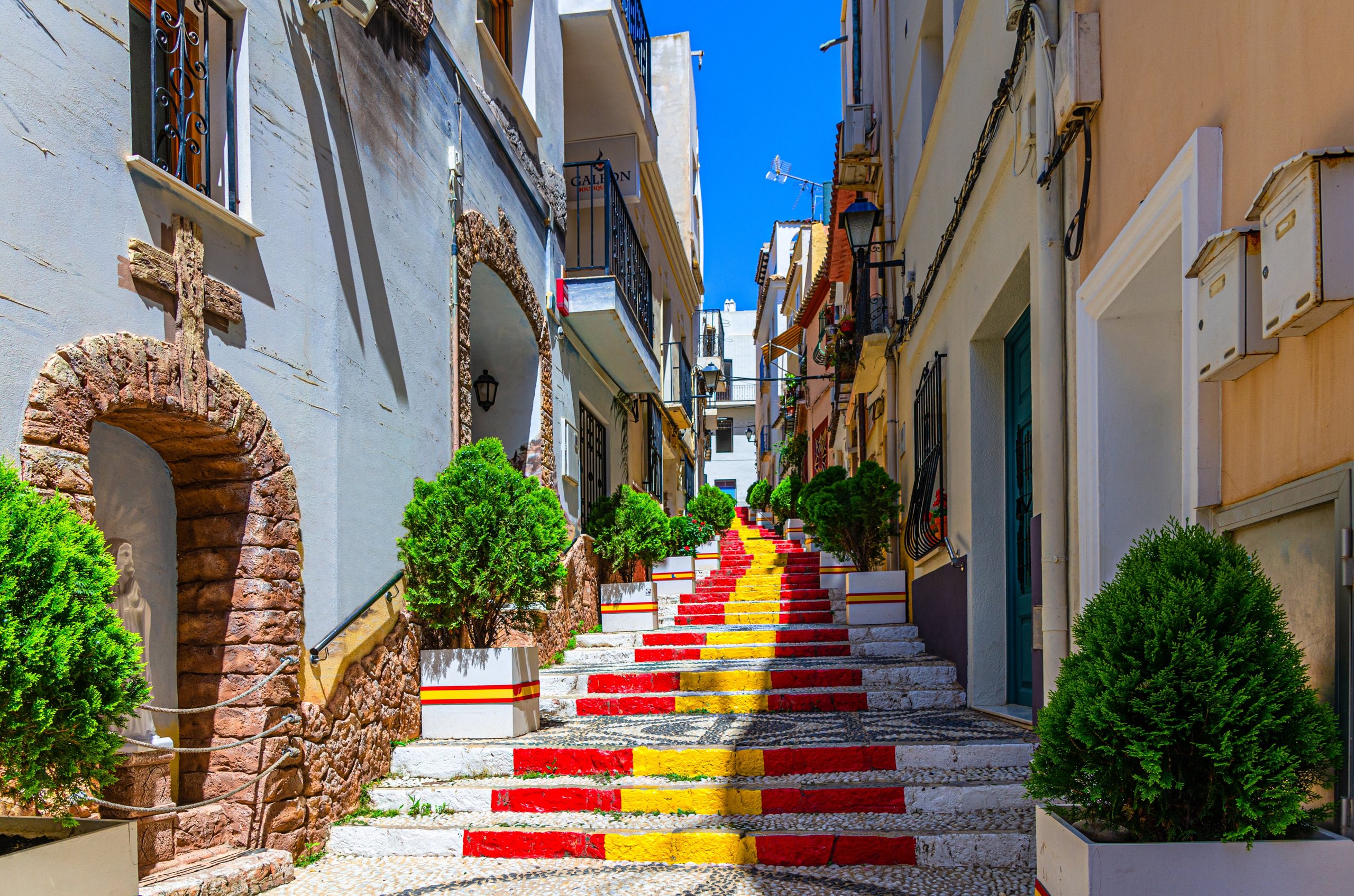Moving to Spain isn’t just about sun, sea and sand – it’s about embracing a healthier way of life. From outdoor sports and social activities to the Mediterranean diet and plenty of daylight, Spain gives you countless opportunities to feel fitter, happier and more energised every day.
Imagine waking up to blue skies almost every day, heading out for a morning walk along the coast, then sharing a leisurely lunch of fresh fish and salad with friends. Life in Spain isn’t just about enjoying the sunshine – it’s about having more energy, living at a slower pace and feeling healthier in body and mind.
Download the Spain Buying Guide
Contents
Why life in Spain feels healthier
Studies show that sunnier climates with more daylight hours improve mental wellbeing and encourage physical activity. In Spain, winter still offers mild weather, so you can stay active outdoors all year. Whether you enjoy golf by the sea, long countryside walks or simply eating fresh produce at a local market, everyday life here naturally nudges you towards better health.
The Mediterranean diet and food culture
The Mediterranean diet is widely regarded as one of the healthiest in the world. In fact, UNESCO has recognised it as part of the world’s cultural heritage. Spaniards eat plenty of fresh vegetables, fruit, legumes, fish and olive oil, with meat often reserved for special occasions. Meals are sociable events, usually enjoyed with family or friends, which contributes to both physical and mental wellbeing.
Markets are central to Spanish food culture. Even small towns have a weekly mercado selling seasonal produce at reasonable prices. Fresh fish, pulses and olive oil form the foundation of many meals, and you’ll often see locals shopping daily rather than weekly. Tapas culture also encourages variety and moderation, with smaller plates that let you enjoy different flavours without overeating.
| Food type | Typical examples | Health benefits |
|---|---|---|
| Olive oil | Used in cooking and salads | Rich in heart-healthy fats |
| Fresh fish | Sardines, tuna, hake | High in omega-3 fatty acids |
| Vegetables & pulses | Lentils, chickpeas, peppers, tomatoes | Packed with fibre, vitamins and minerals |
| Fruit | Oranges, melons, grapes | Natural source of antioxidants |
Sport and fitness
Sport is central to Spanish life. You’ll find opportunities everywhere, from grassroots clubs to international leagues. For many, football is more than a sport – it’s a national passion. If you want to play, expat leagues and even walking football teams are common in popular areas.
Other popular sports include basketball, volleyball and handball, with clubs that welcome newcomers. Cycling is another favourite, especially in Mallorca where both professionals and amateurs train on scenic flat roads and mountain climbs. Golf and tennis are also easy to access in coastal areas. Spain has fewer golf courses than the UK – around 500 compared to 2,500 – but they are located exactly where you’d want them, sometimes with sea views.
Life on the water
With thousands of kilometres of coastline, Spain is a paradise for watersports. Surfing, paddleboarding, sailing and kayaking are all easily accessible. In mountainous regions, you’ll also find opportunities for white-water rafting and kayaking. Joining a yacht club is another way to combine fitness with friendship – many clubs allow you to crew for local skippers, especially if you have basic sailing qualifications.
Gentler sports
Not every sport needs to raise your heart rate. Traditional activities like petanca (similar to boules) are hugely popular in Catalonia and beyond. All you need is a gravel court, a group of friends and a couple of hours in the shade. It’s social, relaxed and gives you a true sense of Spanish community life. Long walks in Spain’s national parks and coastal trails also provide low-intensity exercise with high rewards.
Frequently asked questions
Spaniards tend to live longer thanks to the Mediterranean diet, which is rich in olive oil, fish, legumes and fresh produce. Together, the Mediterranean diet, outdoor activity and social culture support both physical and mental health.
Spain balances work and leisure differently than the UK. With later mealtimes, regular socialising and more outdoor living, daily life feels more relaxed. Many towns also host regular community events that bring people together, which contributes to wellbeing.
Andalusia’s Mediterranean coast and the Canary Islands mild climates, low pollution and access to fresh food, putting them among the healthiest places to live. Areas like Costa Blanca are particularly popular with retirees seeking a health-conscious lifestyle.
You might also like:









